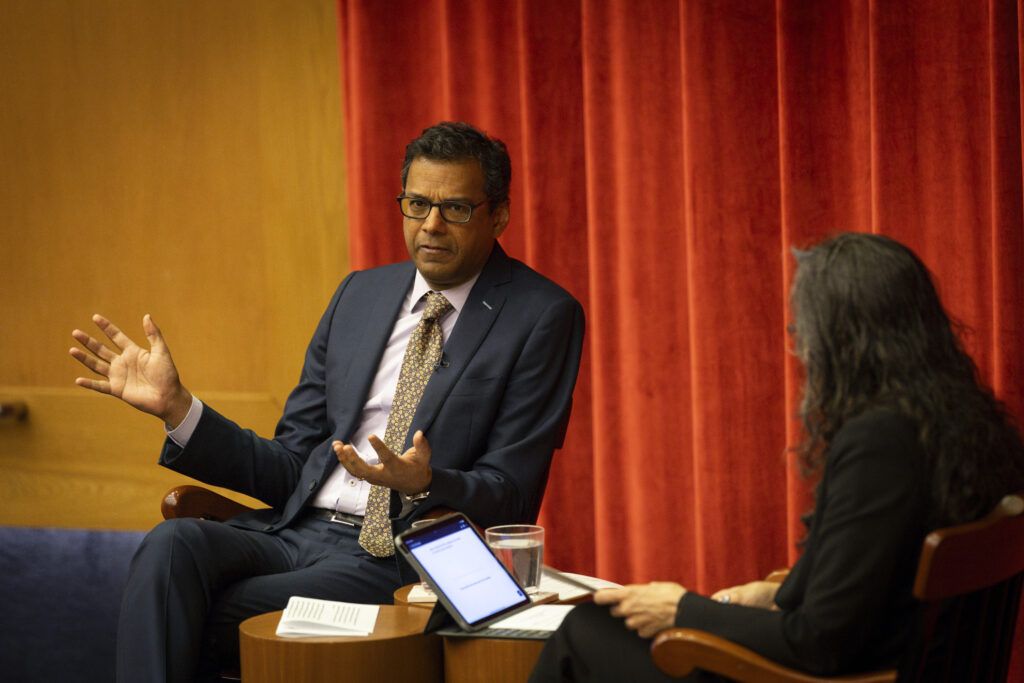In a compelling discussion, Atul Gawande, a renowned surgeon and author, shared his urgent insights on the profound consequences stemming from the dismantling of the U.S. Agency for International Development (USAID). The event, held at Harvard University, addressed not only the challenges posed by these cuts but also the future of global health and the importance of a committed scientific community.
USAID Under Siege
Gawande’s discussion reflected on his tenure as the head of USAID’s Bureau for Global Health, a position he left at the end of President Biden’s term. He argued that the damage inflicted by the previous administration’s drastic budget cuts and staffing reductions left a void in global health efforts. With approximately 85 percent of USAID’s programs terminated and nearly all personnel let go, Gawande emphasized, “the harm done is devastating—not just for those who relied on USAID’s services, but for the United States’ role as a worldwide health leader.”
During the event, he stated, “It is not too late to save our health and science infrastructure and our talent,” underscoring a message of hope amidst the challenging circumstances. He urged the academic community to stay committed to science and medicine, highlighting that their expertise would be crucial for addressing future health crises.
Destruction and Recovery: The Path Forward
Gawande’s extensive experience with USAID is poignant. He detailed how the agency previously facilitated a complex network of health initiatives across 50 countries, which significantly improved epidemic response times and maternal health outcomes. For instance, programs designed to combat diseases such as malaria and HIV had a remarkable impact, ultimately saving millions of lives.
However, the immediate effects of staffing cuts and program eliminations threaten to unravel these advances. “Most countries that were supported by USAID still have stocks of medications,” he explained, “but the sudden freeze on services creates a looming threat to global health outcomes.” This sobering assessment drew attention to the fragile state of healthcare systems worldwide, which could struggle to respond effectively to health challenges without the infrastructure and support that USAID once provided.
Harvard’s Legal Battle Over Funding Cuts
In tandem with Gawande’s comments, Harvard University filed a lawsuit against the federal government due to the unprecedented freeze of $2.2 billion in grants. University officials have characterized the government’s demands, which include stringent conditions regarding antisemitism on campuses, as an overreach that impairs academic freedom and research initiatives.
Harvard President Alan Garber highlighted the severe and long-lasting implications of these actions, echoing Gawande’s sentiments about the need for ongoing, unfettered support for research. The lawsuit aims to restore funding for critical scientific and medical projects that not only benefit the university but also contribute significantly to global knowledge and health improvements.
Global Health Resilience
Despite being aware of the obstacles faced in today’s political climate, Gawande remains committed to fostering a resilient global health landscape. He noted the importance of international partnerships and emphasized that as the U.S. steps back, other nations or regions might undoubtedly rise to fill the vacuum. “If America is going to step back, others will step up. Let’s hope it’s for the right reasons.”
Importantly, he ended with a message for the students in attendance: “You are needed no matter what the landscape looks like.” This statement reverberated through the audience, encouraging the next generation of healthcare leaders to engage deeply in the evolving narrative of global health.
Conclusion: A Call to Action
Atul Gawande’s reflections on the challenges posed by the dismantling of USAID reveal a stark reality for global health initiatives. His passionate call for commitment to science and medicine serves as both a warning and a source of optimism; while the landscape may be changing, there remains a vital need for advocacy, research, and robust public health infrastructure.
As the dialogue continues about the future of global health and the United States’ place within it, the power of individual expertise from scientists, researchers, and healthcare professionals cannot be underestimated. In this time of uncertainty, it is paramount for the academic and medical communities to unite, push back against funding cuts, and demonstrate the significance of a coordinated response to health challenges. Through collaboration and innovation, there is hope for revitalization and progress in global health, benefitting people both in the U.S. and around the world.

